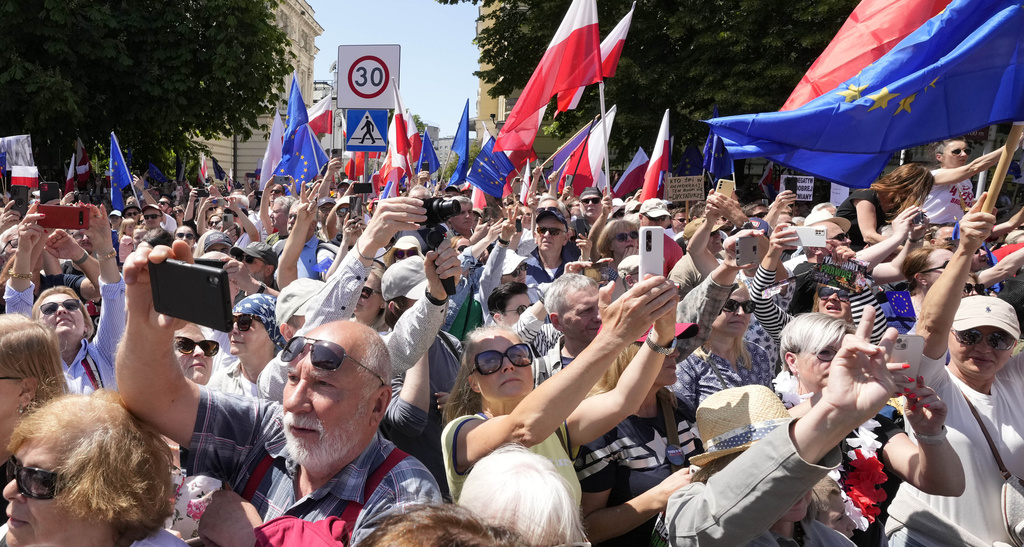Demonstrations don’t win elections, but they do have significance. If they activate new groups of people, or are organized around a new issue, they can signal political or social change.
The demonstration in Warsaw on Sunday organized by the main liberal opposition party, Civic Platform (PO), was sizable. The organizers claimed attendance was approximately half a million, but sources close to the police estimated it to be between 100,000 and 150,000. That would mean it was roughly in line with previous demonstrations for judicial reform and abortion.
Moreover, the demographics of this demonstration were not novel. It was dominated by older and middle-aged people with few young people. The participants were mainly political activists and people from well-off districts of Warsaw and the big cities. The working class was conspicuous in its absence.
We always knew that the opposition and its media are capable of mobilizing their supporters, and it was apparent this time around. However, why should attendance by their core voters pave the way to an electoral victory? That is what the opposition leaders may wish, but the election is still more than four months away and Civic Platform appears to be preaching to the converted.
The ruling conservatives remain in a strong position due to spectacular economic results and the determination and loyalty of their supporters. It can’t easily organize demonstrations of this size because its electorate is more territorially dispersed, but all votes are equal.
In Poland, the metropolitan cities do not make for an electoral majority. In democracies, power is not won at demonstrations but at the ballot box.






